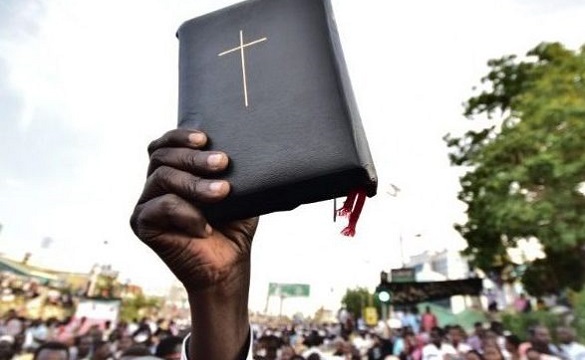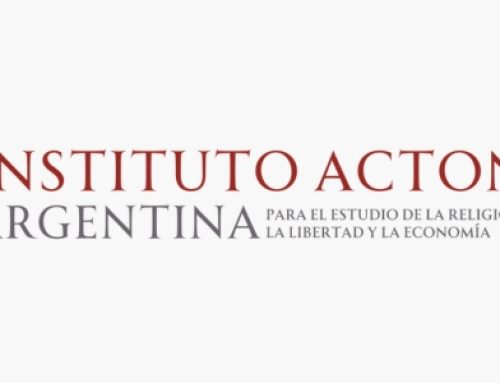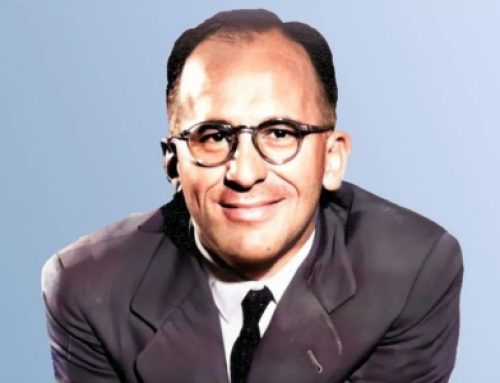Por Carl Trueman
Fuente: Acton Institute Powerblog
2 de febrero de 2022
The First Amendment appears to be under assault from the strangest places, including enclaves of Christians and Christian celebrities who believe power is their only hope. Is Jesus’ kingdom of this world after all?
These are strange times in the United States. We are now living under the second consecutive presidency whose legitimacy is disputed by a significant proportion of the American people. The typical debates about taxation and foreign policy have been eclipsed by arguments about identity politics. And once unquestioned—and unquestionable—constitutional principles such as the importance of privacy and due process are increasingly contested. To these we can add threats to freedom of religion, which is scarcely a surprise in a culture where the larger category of freedom of speech is being challenged. What is surprising, however, is the emergence of significant doubts about freedom of religion within the very communities one might assume regard themselves as benefiting from it: conservative Catholicism and Protestantism.
There have been some fringe groups in the religious world skeptical of freedom of religion for some time. Among Protestants, the theonomists, a group whose polemical volume belies their small number, have been around since the 1980s. More recently, the integralist movement has reemerged within Catholicism, calling for a close relationship between State and the (Roman Catholic) Church and boasting some significant intellectual advocates such as Adrian Vermeule. And in recent weeks there has been debate around what influential evangelical pastor John MacArthur did or did not say on the issue. One need not take a side in the discussion of how to interpret MacArthur’s words to sense that there may well be some ambivalence toward freedom of religion emerging within the ranks of mainstream conservative evangelicalism, even Baptists—an interesting development, given the importance of Baptists to the history of religious of freedom.
As with freedom of speech, freedom of religion has never been an absolute, unqualified right in the U.S. If someone were to rehabilitate the cult of the god Moloch and start sacrificing children, such action would not be protected under the First Amendment because such would be highly damaging to the children involved and thus to society in general. The government would therefore have a compelling interest in outlawing Moloch worship in a way that it would not have such a compelling interest in outlawing, say, groups celebrating the Latin Mass, baptism by immersion for believers, Passover, or Ramadan. To borrow from Jefferson, as long as the religious belief or practice picked no one’s pocket and broke no one’s leg, it was not to be considered a problem for the government to solve.
The question of why religious freedom is now under pressure from both the nonreligious and the religious is an interesting one and does not permit of a single answer, although there is a connection between the objections of both sides. For secularists, religion is now a problem because the notion of harm has extended beyond the issue of physical well-being and ownership of property to which Jefferson’s quip about picking pockets and breaking legs points. Modern Western culture places as much—if not more—emphasis on psychological harm as on these more traditional categories. And that means that words and ideas have the constant potential to become weapons. When you add to that the fact that society no longer has any broadly assented to basis upon which to adjudicate moral and ethical issues, then a heady, volatile, and dangerously subjective mix emerges.
Nations such as the USA are built upon the notion of individual freedom and rights, specifically those of life, liberty, and the pursuit of happiness. The problem is that the latter in particular becomes a highly subjective and indeed rather nebulous concept once a psychological notion of selfhood becomes normative. What one person publicly affirms as true might be deemed as psychologically damaging to happiness by another. Thus, for example, a public reading of Romans 1 in a worship service would be seen by a traditional Christian as a legitimate act of religious freedom; but a gay person might see it as an act of hate directed against his person causing significant harm. Such examples abound in contemporary America, and not simply with regard to religious speech. And as fewer and fewer people are themselves religious and consider religion to be of any great importance, the pressure grows for such speech to be denied protection by the First Amendment. Indeed, opposition to the First Amendment in general increases.
There is nothing particularly surprising in the narrative above. But why is the question of religious freedom becoming a talking point within religious circles?
One reason is no doubt reaction to the moral chaos we see around us. The First Amendment may be sweeping in its provisions, but the Founders were no doubt assuming that such freedom would be understood to operate within a broadly agreed-upon moral framework. They did not want the federal government legislating on, for example, the practice of baptism, but they assumed that the populace would be in sync on the basic moral framework necessary for a free society. Christian social morality was therefore safe and the question of whether it was rooted in Trinitarianism, deism, or even an atheism that still considered the basics of that morality correct was irrelevant. Now Christians see that in a post-Christian, postmodern world, the First Amendment can actually be used to delegitimize traditional Christian morality, especially with regard to such things as sex. The desire to enforce a sacred order for morality, whether Catholic, as in the case of integralism, or Protestant, as in the case of theonomy, is thus understandable.
Understandable but hardly practical. Given that the Roman Catholic Church in the West is in such a pitiful state that it does not even grip the imaginations of the vast majority of baptized Catholics, it is hardly poised to assist in the building of a nationwide cultural imagination that might provide the context for a common foundation and framework for moral reasoning. In light of this, integralism even at its most impressive is nothing more than the sophisticated glass-bead game of a handful of intellectuals, of no practical relevance to the future at all. And if that is true of Roman Catholicism, it is no less true of Protestantism. The Moral Majority is now a contradiction in terms; “evangelicalism” lacks any generally agreed-upon theological core and controls no institutions of significant cultural influence; and the handful of theonomists in existence are irrelevant to Protestantism broadly considered, let alone to the nation’s politics as a whole. Repudiation of freedom of religion today will not look like some form of Christendom. It will look more akin to a militantly enforced secularism.
A second objection to religious freedom from the religious might be that it facilitates error and allows the propagation of false religious teaching. It is hard to deny that, but two points must here be considered.
First, much as Christians might want the whole world to be Christian, the state has neither the power nor indeed the competence to make this so. And nothing in the New Testament suggests that it does. The propagation of the gospel is the task of the church. A confusion of powers and competencies in this regard will prove disastrous. Would a Catholic state punish Baptists? Would a Presbyterian state sanction Catholics? For the Baptist, the state allowing freedom for infant baptism is surely for the state to allow error—very serious error from a Baptist’s perspective in the case of Roman Catholic (or for that matter Lutheran) baptism. And for the Catholic, toleration of credobaptism is permission for error, and again very serious error. Denial of religious freedom by a Christian state is only attractive if it is your particular party that happens to be the one in charge and the “errors” that are not tolerated are those with which you happen to disagree.
Second, on a positive note, religious freedom safeguards the true nature of religious belief. It is not something that can be forced from the outside. It is something that (perhaps more than anything else) speaks to human beings who find their meaning and fulfillment in seeking the truth as free citizens rather than being forced outwardly to conform to it. To deny religious freedom is to deny this basic anthropological point, that men and women are free—not free so much in the Rousseauean sense that denies our innate status as born into a network of natural obligations and dependencies, but free in the sense of having agency and of realizing those obligations and dependencies in freely chosen actions. To deny religious freedom is to make the state the most important social agent, with all those other relationships—to family, to neighbor, to God—subordinate to that larger, practically totalitarian vision.
This is not to say that religious freedom is not rendered highly complex and practically more ambiguous in a world where the moral imagination is no longer in continuity with that of the broad Christian tradition as was assumed by the American Founders. Our pluralist and psychologized world raises all kinds of problems that the Founders could not have anticipated. But it is to say that the alternative remains worse. Much, much worse. Given the pitiful state of the Catholic Church and the anarchic mess that is Protestantism in its various traditional varieties, Christian leaders might do well to remember that.





Deja tu comentario